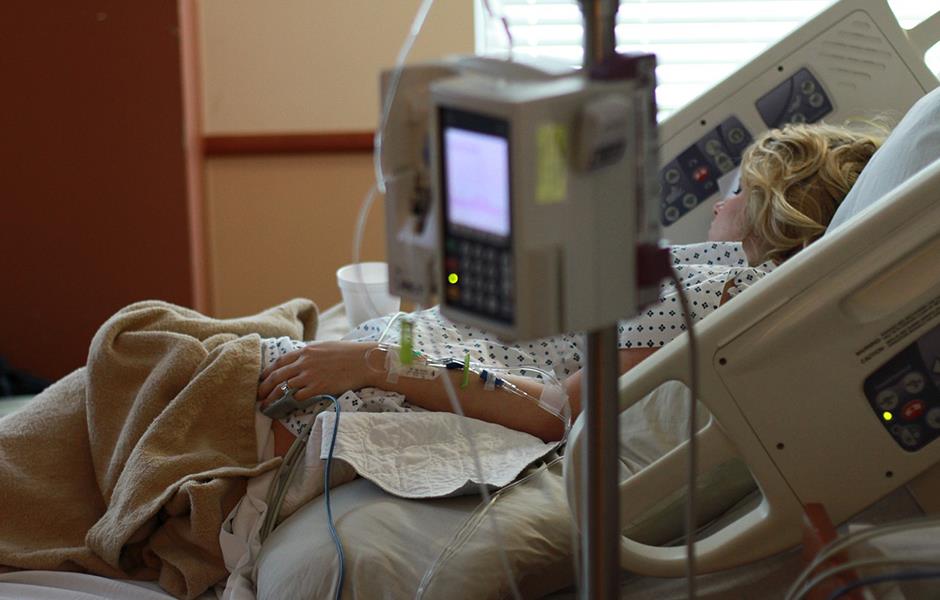The health care provided is not the same throughout the national territory. In Portugal, patients with acute myocardial infarction admitted to a hospital in Lisbon, Alentejo or Algarve have a higher mortality risk than those treated at a hospital in the north of the country. The results are from a study developed at CINTESIS – Center for Health Technology and Services Research, by the researcher Mariana Lobo.
“A health system must provide high quality health care regardless of the hospital in which patients are treated, assuming that everything else is the same,” says Mariana Lobo.
In order to evaluate whether this premise is met with regard to coronary disease, the researcher studied “the variations among hospitals in in-hospital mortality and urgent readmission occurring up to 30 days after discharge from patients with acute myocardial infarction in the years from 2012 to 2015″. In total, more than 38,000 hospitalization records were analyzed from 37 hospitals. Data were obtained through the Central Administration of the Health System (ACSS in Portuguese) and included the records of all hospitals in Portugal, duly anonymised.
Most of the patients are males and are 69 years-old, on average. Among the diseases that coexisted with infarction, the most importants are atherosclerosis (accumulation of fat in the arteries), with a rate of 67%, and diabetes, with 35%.
8% of the total variability in in-hospital mortality due to acute myocardial infarction is due to differences among hospitals. It is expected that hospitals that receive patients with the most severe disease and/or with more comorbidities will have higher mortality rates. However, the baseline characteristics of the patients did not explain all the variability among hospitals. In fact, the data show that the probability of a patient with infarction to die is twice as high if treated in a high-risk hospital than if treated in a medium/low-risk hospital.
“Our results confirmed that the hospital represents a contextual effect – some hospitals perform consistently better than other hospitals. In addition, among the hospital characteristics examined, it was found that the number of treated infarct cases and hospital size were associated with lower mortality and readmission rates”. That is, the health care provided to coronary patients tends to be better, the more cases of stroke are treated annually in the hospital and the smaller the hospitals.
The geographical location of the hospital also showed a relationship with the quality of care provided, with a patient with acute myocardial infarction hospitalized in the Alentejo/Algarve or Lisbon regions presenting an in-hospital death risk greater than 30% when compared to a patient treated in the North of the country”.
Mariana Lobo, therefore, stresses that health policies could be directed to specific hospitals, depending on their level of risk, and special attention should be given to the number of cases of hospital infarction and hospital practices in different geographic regions. “It is necessary to design strategies directed to hospitals with weak performance, in order to reduce existing inequities in the quality of health services provided in the North and South of the country”, she concludes.
The thesis supervisors, Armando Teixeira-Pinto (University of Sydney) and Sharon-Lise Normand (Harvard Medical School), stress that this work provides “vital information to improve the quality of health care” in coronary disease, and in particularly in the treatment of patients with acute myocardial infarction in Portugal. In line with the United States, Canada, and other countries that show a strong tradition in monitoring the quality of health care provided to the citizens, Portugal could benefit from regular activities of measurement and monitoring of frequent and costly conditions – and lethal or highly disabling conditions – such as acute myocardial infarction.
It should be noted that acute myocardial infarction is one of the leading causes of death in developed countries and is associated with high costs for health systems. In Portugal, the mortality rate during hospitalization in cases of acute myocardial infarction is higher than in other countries. According to ACSS data, one in ten patients does not survive.
The research study was funded by the program Harvard Medical School/Portugal.

